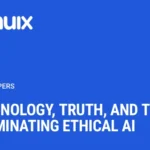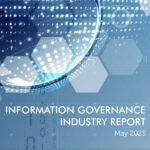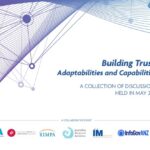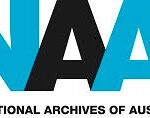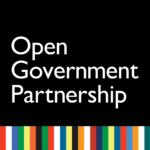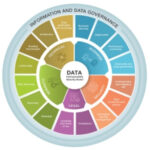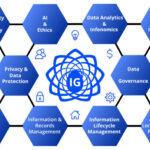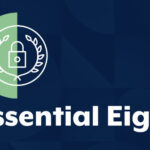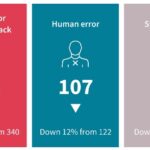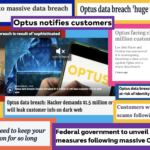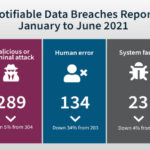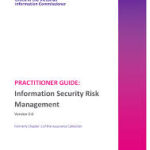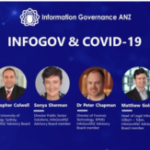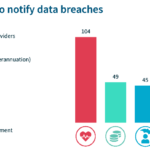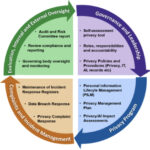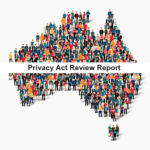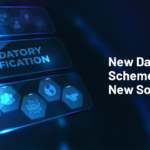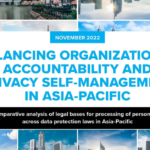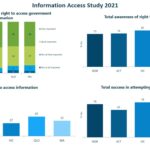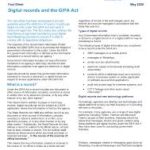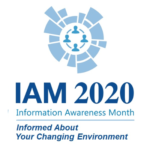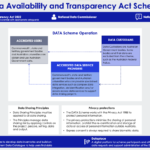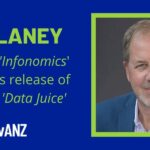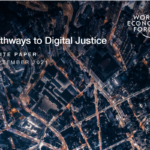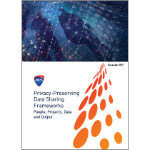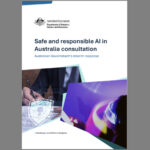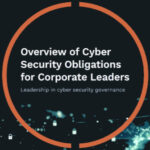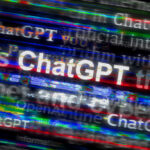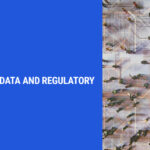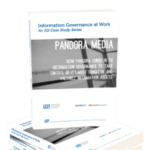Data Minimisation: Reducing Data Privacy Risks
Thursday, 9 May 2024, 11am – 12noon AEST Join us to learn more about why data minimisation is key to reducing data privacy risks and how to embed data minimisation in your organisation. This virtual webinar will cover: High-profile data breaches, over-retention of data, and global regulatory trends What are […]
Read MorePrivacy Awareness Week 2024
Privacy Awareness Week (PAW) 2024 is running from 6-12 May. The theme this year asks people, organisations and government agencies to ‘power up your privacy‘. This sits under the overarching theme of Privacy and technology: Improving transparency, accountability and security. PAW 2024 provides a great opportunity to consider what you can do […]
Read MoreFive Key Lessons from Robodebt for AI and Technology Projects
Australia’s Robodebt scandal provides some critical lessons for boards/governing authorities and senior executives implementing artificial intelligence (AI) and technology in both the public and private sectors. The emergence of AI governance guidance and standards, such as AS ISO/IEC 42001:2023 and NIST’s AI Risk Management Framework, are helpful tools for organisations […]
Read MoreDigital ID Bill passes Senate
The Digital ID Bill 2023 and Digital ID (Transitional and Consequential Provisions) Bill 2023 have now passed the Senate and are expected to progress to the House of Representatives in the next sitting period this year. The key amendments made to the Exposure Draft of the Digital ID Bill […]
Read MoreAI Governance now mandated for U.S. Federal Government Agencies
On 28 March 2024, President Biden issued a Memorandum establishing new agency requirements and guidance for AI governance, innovation, and risk management, including through specific minimum risk management practices for uses of AI that impact the rights and safety of the public. Specific actions required by agencies include: Designating a Chief […]
Read MoreTechnology, Truth, And Trust: Illuminating Ethical AI
This Nuix whitepaper explores ways in which creators and users of complex AI solutions can mitigate the many ethical risks posed to organisations and society, without undermining AI’s profound ability to help solve our thorniest and most pressing challenges. As the pace of technological change increases, so does the importance of achieving a […]
Read MoreLegalweek NY 2024 Report from down under
It was wonderful to attend #Legalweek24 in New York City to see and discuss the latest legal and technology developments. The three things that stood out were: the legal technology AI race is on, robust cybersecurity and information governance are critical, and the LegalWeek buzz. These and other highlights are discussed in this article. The legal technology AI race is on As expected, while the AI starting gun had sounded this time last year, AI and Generative AI were the hot topics of discussion with both hype and some caution sounding. There were new innovative technology tools as well as improvements to existing tools and systems. It will be interesting to see which companies emerge from the pack as AI leaders in #legaltech (including start-ups) in the next 12-18 months. The AI sessions, including the AI workshops, were filled to capacity, some with standing room only. Sessions focused not […]
IG Industry Report 2023 Released
InfoGovANZ is delighted to release the IG Industry Report 2023, which tracks the key developments and trends in IG. This year’s key findings include: The key drivers and priorities for information governance activities within organisations were: External regulatory, compliance or legal obligations Good business management practices Internal technology restructuring or […]
Read MoreLegalweek 2023 – the perspective from down under
The key takeaway from Legalweek 2023 is that the AI revolution has begun. Its impact will be profound and, as we have seen with the further generative AI developments announced during Legalweek, it will be delivered with great speed. Highlights The highlight was the closing keynote with Dan Schulman, CEO of PayPal. When you hear a CEO on the one hand emphasising the benefits of technology that can be a ‘real force multiplier’ for good, but on the other hand calling for regulation of AI, it is clear we need urgent action for legislated guardrails to ensure there is ethical use of AII, so that it doesn’t result in #discrimination and misuse of personal information. In a conference dominated by ChatGPT and generative AI, the juxtaposition of the opening and closing keynotes with many of the sessions could not have been more stark. LeVar Burton (Roots, Star Trek, Reading Rainbow) spoke about the power of storytelling and emphasised the ‘importance of the human element.’ In the closing keynote interview with […]
Information Lifecycle Management: what is it and how it reduces risk?
Most organisations are collecting and generating exponentially increasing volumes of data each year. However, many organisations struggle to safely and efficiently dispose of data that is no longer needed for regulatory retention requirements or for legitimate purposes, as required, for example, under the Australian Privacy Principles (APPs), the General Data Protection Regulation (GDPR) and the Californian Privacy Rights Act (CPRA). On top of the complexity of keeping track of data within the organisation, the perception that data is ‘the new oil’ and increasingly cheap storage costs are typical reasons why data is not actively managed and disposed of when no longer required. The Optus, Medibank and Latitude data breaches, together with the increasing number of decisions by regulators in the US and EU, underscore the risk and consequences of over-retention of data for organisations. Most of these decisions on over-retention of data arise from inadequate cyber security and have resulted […]
2022 Information Awareness Month One Day Seminar
This year’s Information Awareness Month One Day Seminar took place at the iconic Institute Building (1861), the first public cultural building in South Australia and was also livestreamed. The theme was “Building Trust in Information” and discussions revolved around facets that we need to trust in order to have trust in information. These included trust in people, process, technology and government. The seminar opened with remarks from Geoff Strempel, Director, State Library of South Australia. As a society we are “drowning in data” and in a knowledge economy IM practitioners are the trustees of information. A huge challenge is the massive data sets that need computers and machine learning to extract patterns and interpretations, but human intellect is still required to assess the outcomes and ultimately arrive at wisdom. ML and AI also raise ethical and privacy dilemmas as technology enable computers to essentially have free reign across the data. […]
New Frontiers and Information Technology Governance
Professor Michael Adams, Head of UNE Law School, InfoGovANZ Advisory Board Introduction The last two years have been a period of disruption due to COVID-19 pandemic and the need for all businesses and organisations to “pivot”. In the information governance space this has been a major positive and a serious […]
Read MoreInfoGovANZ releases the Information Governance Primer
Susan Bennett, Executive Director of Australian based think tank, Information Governance ANZ (InfoGovANZ), is delighted to launch the Information Governance Primer, which provides a wide-ranging overview on the fundamentals of good information governance. In today’s digital environment, the growing number and complexity of challenges associated with data and information have […]
Read MoreIAM 2021 Events Summary Report
Information Awareness Month (IAM) is the opportunity for industry bodies and industry practitioners to work together to celebrate the amazing profession of managing information. The collaboration of industry groups continues to evolve by strengthening relationships which in turn, provides added exposure to all things information for all members. Industry bodies worked together to determine the trending issues impacting Information Management (IM) in 2021 and agreed that the National Archives of Australia (NAA) new policy “Building Trust in the Public Record” provided guidance on the theme for this year’s IAM. The IAM 2021 Events Summary report provides collaborative group members a summation of the discussions that occurred at each of the round tables with ideas to follow up in the ensuing years.
InfoGov IAM2021 Roundtable Report
The Information Governance (IG) Roundtable had an engaged discussion covering a wide range of current issues and drivers for information governance. The discussion covered: Drivers of Information Governance in 2021, the compelling reasons for organisations to implement Information Governance, what are the current challenges and actions for protecting information and more. Participants included Roxanne Missingham, Kathryn Dan, Alex Caughey Hutt, Dr Chris Colwell, Dani Wickman, Fiona Beatty, Judy Anderson, David Brous, Genevieve Dwyer, Brandon Voight, David Church, Amanda Dolman and Simon Costello. The roundtable was hosted by InfoGovANZ, facilitated by Susan Bennett and sponsored by ActiveNav. IG Drivers in 2021 Our discussion considered key trends in IG, noting that the InfoGovANZ IG Industry Report 2021 identified the three main drivers for IG as: External regulatory compliance and legal obligations; Good business management practices; and Internal technology restructuring or transitions. The role of regulatory compliance as a mechanism to elevate […]
Pioneer of IG – Dame Fiona Caldicott
Dame Fiona Caldicott, the first UK National Data Guardian for Health and Social Care passed away this year. Dame Fiona was the UK pioneer of Information Governance, with the publication of the Caldicott Report in 1997 setting the benchmark for the collection and use of personal information and the need for robust information governance to protect personal information. The Caldicott report established what became known as the Caldicott principles of information governance. The original six principles included: justify the purpose for using confidential information; use confidential information only when it is necessary; use the minimum necessary confidential information; access should be on a strict need-to-know basis; making sure anyone accessing confidential information is aware of their responsibilities; and comply with the law. In 2013, the Information Governance Review Report, chaired by Dame Fiona added a seventh principle and following a further review in 2016 an eighth principle was added. These made it clear […]
Building trust in the public record – Public Release schedule
The National Archives of Australia‘s new whole-of-government information management policy, Building Trust in the Public Record: managing information and data for government and community is now in force – https://bit.ly/3nfgGlV The new policy supports a holistic approach to information and asset management using information governance. The aim of the policy is to continue to improve information management capability within the Australian Government (Cth) to meet current and future needs for trusted, authentic and reliable records, information and data for government and community. Accompanying the policy release are new, updated and existing National Archives guides and supporting advice to help government agencies implement the policy and meet each of the 17 policy actions. Learn more about what is required here including reviewing and updating your information governance framework to incorporate enterprise-wide information management including governance of records, information and #data: https://bit.ly/3ndX5CC
Building Trust in the Public Record Highlights
Information Governance ANZ was pleased to host an interactive forum with David Fricker, Director-General of the National Archives of Australia regarding the new policy Building Trust in the Public Record: managing information and data for government and community. This interactive session covered: · Key information management requirements for Australian Government agencies · Actions that agencies can take to build information management capability and address areas of low performance · Current and future needs for authentic and reliable information and dat a by government and community The importance of trust David outlined the role of the National Archives and its responsibilities under the Archives Act 1983. NAA identifies archival resources, preserves them and provides the government and community with access to those resources. The Archives also develops standards to help Commonwealth agencies manage data and information – ensuring the integrity and accessibility of these resources for as long as they are needed. The public […]
Universities information governance in a time of COVID-19
Without a shadow of a doubt, 2020, will be remember for the impact of COVID-19, lockdowns, deaths and hospitals stretched to the limits. For Australia, the pandemic also followed the worst drought in a century and the worst bushfires in recorded history. This has had a profound impact on one of Australia’s largest exports, valued at over trillion dollars, education. Universities across Australia have been impacted in so many ways, which have pushed their systems to their limits. It has highlighted the importance of data and technology and the crucial importance of information governance. Issues In April 2020, I was interviewed by GRC Professional journal on the risks to universities (before COVID-19 had taken a grip, but once Chinese student visas were cancelled). I was asked “What are some the broad risks that universities face?” My reply was the current risk in Australian universities is, without doubt, the impact of […]
AI Transparency in Digital Government
In celebration of International Access to Information Day and Right to Know Week in NSW 2020, we held an event on AI Transparency in Digital Government with NSW Information Commissioner Elizabeth Tydd, Victorian Information Commissioner Sven Bluemmel and Dr Jat Singh, Senior Research Fellow at the University of Cambridge. The discussion focused on the duty government agencies have to disclose algorithms used in providing services and making decisions about services and benefits to citizens. The Commissioners highlighted that robust procurement processes are essential where technology using algorithms are being procured by agencies. Commissioner Bluemmel said the bar needs to be set really high where the algorithmic decision-making involves people and their liberties and livelihood. Transparency is necessary to understand how the decisions are made in order to assert our rights. Dr Singh pointed out that transparency needs to be meaningful so that it allows us to be able to interrogate, scrutinize and challenge, and it requires organisations to give careful consideration […]
NAA’s new policy: Building Trust in the Public Record
The National Archives of Australia (NAA) published in July 2020 the draft policy Building Trust in the Public Record: managing information and data for government and community. It was been released together with a list of supporting advice that exists, or will be developed or updated, to support the policy. InfoGovANZ submitted its feedback in response to the new policy, which is available here. The new policy will take effect from 1 January 2021 and will follow the current Digital Continuity 2020 policy (DC2020) which concludes at the end of this year. The policy seeks to improve information management capability within the Australian Government to meet current and future needs for authentic and reliable information and data by government and community.
For Governance, Integration Matters
Effective corporate governance is not a one-size-fits-all approach, as recognised by regulators and self-regulatory organisations around the world. Principles propounded by local advisory and governing bodies provide guidance on how to effectively and transparently manage an organization and ensure it is meeting its obligations to all stakeholders. We will examine how corporate governance principles can be enhanced and improved by the explicit integration of information governance into companies’ corporate governance schema. Corporate Governance Corporate governance is, in its most general terms, how a business is controlled, governed, and operated. Principles of good corporate governance include fairness, accountability, responsibility, and transparency. A company’s system of governance is its framework of rules, relationships, controls, and processes. Company management and boards have myriad responsibilities. These range from planning for pandemics, natural disasters, and other major events that can affect a company’s basic ability to conduct business and disrupt operations; managing the company’s […]
Information Governance Key to Good Corporate Governance
Information governance, data protection and security, privacy, cybersecurity and artificial intelligence (AI) have all become critical topics for boards and government bodies to consider. Historically, the issues tended to be dealt with under either ‘IT’ issues or records and information compliance issues. In recent years, the importance of cybersecurity, AI and data analytics together with changing privacy regulations have brought new governance challenges to the forefront of the minds of directors. Top issues for Directors There are common themes in the surveys of top issues confronting Boards of Directors, which have been carried out in recent years. These include the opportunities and challenges arising from technology innovation and disruption, the overriding concern of cybersecurity and data breach, which is highlighting the importance of information security, and regulatory compliance including changing privacy regulations. The Akin Gump Lawyers group in the USA report an annual “Top 10 topics for Directors” each year, […]
COVID19 – Global Open Data Initiatives
The Open Government Partnership (OGP) has created a webpage collating government approaches responding to COVID-19. The open government community is focused on applying the principles of transparency, accountability and participation to the COVID-19 response. The webpage contains a crowd sourced list from a wide range of countries with a variety of initiatives, including: the release of theoretical models and data underpinning governments’ strategies; digital platforms and apps to keep citizens informed; and efforts tackling misinformation and disinformation online. The Open Government Partnership (OGP) is a multilateral initiative that aims to secure concrete commitments from national and local governments to promote open government, empower citizens, fight corruption, and harness new technologies to strengthen governance. Formed in 2011, its members now include governments from across 78 countries and thousands of civil society groups, representing more than 2 billion people worldwide. Open government strives to provide transparency and accountability to the public, […]
Information and Data Governance Driving Interoperability
Achieving interconnected services, sharing and re-using information and data assets requires strategic planning and investment. The Data Interoperability Maturity Model (DIMM) is the latest advice from the National Archives of Australia for building interoperability under the Digital Continuity 2020 Policy. It highlights the importance of information and data governance to drive interoperability initiatives. The Director-General of the National Archives of Australia, David Fricker stated, ‘it is often said the data is the ‘oil’ of the 21st century, because in the future data will be the principal resource that drives our economy and our way of life. Just like oil, data has to be properly managed. It must discoverable, and of sufficient quality – pure, authentic and reliable – to drive the processes that rely on it. Unified information and data governance empowers an organisation to align its interoperability objectives while balancing associated risks.’ The DIMM’s downloadable assessment tool helps your […]
Automated Speech Recognition
While Automated Speech Recognition (ASR) technology has been present in various forms for decades, advances in statistical modelling, artificial intelligence (AI) and automation connectively have resulted in a new frontier for speech-based interaction between humans and computer systems. In this article Dr Peter Chapman, Director in the KPMG Forensic Technology team and InfoGovANZ advisory board member, details some of the current applications of ASR technology and offers guidance on a number of emerging governance issues associated with these technologies. As a concept, computerised Automated Speech Recognition (ASR) has been around almost as long as the computer itself. However, only in the last decade have the capabilities of ASR technology reached the point where wide-scale commercial adoption is viable1. Natural human speech contains slang terms, dialect peculiarities, abbreviations and other “non-standardised” content. While humans are very adept at managing these issues, the enormous variability of human speech makes ASR a very […]
Information Governance 2020
The Information Governance 2020 Roundtable took place on Monday, 18 November at the Governance Institute of Australia. The event covered highlights from the recent InfoGovANZ Survey Report, privacy developments and trends globally, the new ISO working group developing an Information Governance standard, and the new records management cloud-based system utilising machine learning at the Australian Human Rights Commission. There was a great turn out of members, sponsors and interested parties for a fantastic session covering a broad range of IG topics. Executive Director, Susan Bennett started the ball rolling with a summary of valuable insights from the most recent InfoGovANZ IG Survey Report, noting the trend towards improved Information Governance awareness and leadership recognition since our 2017 survey. Just over half of the organisations surveyed have an formal IG framework with clearly articulated policies and procedures. 90% of respondents expressed agreement with the definition of ‘information governance’ – although some […]
Information Governance: optimising the lifeblood of organisations
Data and information are increasingly becoming the lifeblood of organisations. However the exponential amounts of data being collected by companies and government alike, together with the risks and costs of holding and securing this information, have created a new set of issues for those responsible for organisational governance. IG provides a unified strategic framework for the control, security, optimisation and effective use of information. It is an essential part of good corporate governance, assisting organisations to maximise the value of information while minimising risks and costs by providing a mechanism to align policies and processes, people and technologies across an organisation. The IG diagram below shows different areas and activities within an organisation responsible for the security, control, optimisation and risk management of data and information. There may be more or fewer areas according to the type and size of the organisation. The key to implementing an effective information governance […]
Information Governance as a Key Enabler of Successful System Design
This is the first in a series of articles explaining how design information governance (IG) adds to the ontological and structural language that creates the ‘sensemaking’ framework for complex adaptive systems. In doing so, IG provides a foundational enterprise capability which enables adaptive behaviour and organizational resilience in the face of changes in the internal and external environment. Modern society is enabled by systems, some of them technology-centric like our road and rail networks, some human-centric like our system of parliamentary democracy, and some a more balanced mix like our health system. Successful systems are those that are effective in meeting the needs that they were designed (or emerged) to meet and are sustainable in the face of change. A key enabler of successful systems is appropriate design information. For example, the number and boundaries of electorates in our parliamentary democracy are periodically adjusted to ensure that the (design) […]
Information & Data Trends & Challenges – IAM 2019
InfoGovANZ joined with National Archives and other professional organisations including RIMPA, IM, DAMA, Australian Society of Archivists, Australian Library and Information Association as part of Information Awareness Month. The event provided an opportunity for industry leaders to share perspectives on contemporary information and data management trends and challenges. The Many Voices, One Message booklet summarising the key themes and topics discussed at the workshop has just been published this week. Access the booklet
Corporate governance in the digital economy: The critical importance of information governance
Information is critical to decision-making and plays an essential role across all three pillars of governance. The emerging driver of good information governance globally is compliance with regulatory obligations, particularly with the growth in global privacy laws. Effective information governance requires top-down board and senior executive leadership. Good corporate governance in the data driven and digital economy poses significant challenges for Boards and seniors executives. This article highlights the importance of information governance to ensure there is a unified strategy and framework to govern information effectively. Good information governance enables organisations to maximise the value of information as a business asset while minimising risks and costs, particularly those associated with data breach. Over the last 25 years there has a lot been written about corporate governance. There have been debates about the value it adds to an organisation and even the share price on the Australian Securities Exchange (ASX). […]
Update to the Essential Eight Maturity Model
The Australian Signals Directorate (ASD) and Australian Cybersecurity Centre have recently updated the Essential Eight Maturity Model (E8MM) to assist organisations in protecting their internet-connected information technology networks against common cyber threats. Key focus areas for this update include: balancing patching timeframes increasing adoption of phishing-resistant multifactor authentication supporting management of cloud services, and performing incident detection and response for internet-facing infrastructure. View the Essential Eight Maturity Model here
Latest Data Breach Report and Trends
The latest Notifiable data breaches report was released last week, highlighting the need for organisations to strengthen data security and promptly respond to suspected breaches. The Australian Information Commissioner and Privacy Commissioner Angelene Falk said that ‘OAIC expects organisations to have robust and proactive procedures in place to protect the personal information they hold.’ The January to June 2023 period saw 409 data breaches reported to the OAIC. While that was a 16% decrease in the number of notifications compared to the previous period, there was one breach that affected more than 10 million Australians. This is the first breach of this scale for Australians since the scheme began in 2018. Cybersecurity incidents were the source of 42% of all breaches (172 notifications). The top three cyber-attack methods were ransomware (53 notifications), compromised or stolen credentials for which the method was unknown (50 notifications) and phishing (33 notifications). Contact, identity and financial information […]
US and Australian government issue joint Cyberseucrity Advisory on preventing Web Application Access Control Abuse
The Australian Signals Directorate’s Australian Cyber Security Centre (ACSC), U.S. Cybersecurity and Infrastructure Security Agency (CISA), and U.S. National Security Agency (NSA) have recently released a joint Cybersecurity Advisory to warn vendors, designers, and developers of web applications and organizations using web applications about insecure direct object reference (IDOR) vulnerabilities. IDOR vulnerabilities are access control vulnerabilities enabling malicious actors to modify or delete data or access sensitive data by issuing requests to a website or a web application programming interface (API) specifying the user identifier of other, valid users. These requests succeed where there is a failure to perform adequate authentication and authorization checks. These vulnerabilities are frequently exploited by malicious actors in data breach incidents because they are common, hard to prevent outside the development process, and can be abused at scale. IDOR vulnerabilities have resulted in the compromise of the personal, financial, and health information of millions of users […]
Third-Party Risk and Cybersecurity: Navigating Evolving Threats and Data Governance
High-profile data breaches in the last few years have not only resulted in increased regulatory attention but have also served to highlight the evolving set of cyber threats faced by organisations. Of particular note, there have been numerous incidents where cybercriminals have managed to obtain organisational data not through a direct attack on the organisation but rather by breaching a third-party IT supplier to the organisation. The sophistication of cybercriminal attacks is increasing both in terms of the attack methodology and the strategic intent behind the selection of their targets. When the first wave of ransomware attacks was launched in the early 2000s, these were largely indiscriminate, impacting whichever personal, business, or government system that the malware could gain access to. Following this initial wave, we have observed increased fine-tuning of malware attacks over time. From a code perspective, some examples of this evolution have included built-in checks in the […]
Questions for boards to ask about cybersecurity
The Australian Cyber Security Centre (ACSC) has released a guide for boards and executives that discusses high-level topics to know about cyber security within organisations. Boards need to proactively build an understanding of their organisation’s specific cyber threat and risk environment. The Guide sets out how the board can understand as […]
Read MoreOptus Data Breach – the risks of data over – retention
The Optus Data Breach incident has shed some much-needed light on the need for robust, top-down board governance over organisational data and information. It is evident that this attack has demonstrated the need for organisations to sufficiently invest in cyber-attack prevention, detection and response. While the Optus data breach is […]
Read More2022 Information Awareness Month One Day Seminar
This year’s Information Awareness Month One Day Seminar took place at the iconic Institute Building (1861), the first public cultural building in South Australia and was also livestreamed. The theme was “Building Trust in Information” and discussions revolved around facets that we need to trust in order to have trust […]
Read MoreOAIC Data Breach Notification Report
The Office of the Australian Information Commissioner’s (OAIC) latest Notifiable Data Breaches Report highlights how OAIC expects entities to prevent and respond to data breaches caused by ransomware and impersonation fraud. The OAIC received 446 data breach notifications from January to June 2021, with 43% of these breaches resulting from cyber security incidents. Data breaches arising from ransomware incidents increased by 24%, from 37 notifications in the last reporting period to 46. Read the latest report here.
Cyber Risk Management and the Value of Cyber Insurance
The technology revolution has created unprecedented developments in the way that business is transacted, how information is obtained, how we communicate with each other and how data is sourced and stored. The reality of these developments has also lead to unparalleled increases in the ability of criminals to act in a digital environment rather than in the physical world and cyber crime has never been more financially rewarding. Cyber risk and cyber exposure exists for every business that uses technology and connects to any form of information systems and networks. Size of business, industry factors and reliance on technology for critical operations can increase cyber risk vulnerability, but no business is immune. Managers are faced with the challenge of protecting against cyber risk and implementing strategies and procedures to safeguard against the potential loss and damage suffered in a cyber event. Cyber risk management is a holistic approach to evaluating […]
OAIC Data Breach report: January – June 2020
The Office of the Australian Information Commissioner (OAIC) has released its Notifiable Data Breaches (NDB) Report for January to June 2020. Malicious or criminal attacks remain the leading cause of data breaches involving personal information in Australia. Commissioner Angelene Falk said, ‘this trend has significant implications for how organisations respond to suspected data breaches — particularly when systems may be inaccessible due to these attacks. It highlights the need for organisations to have a clear understanding of how and where personal information is stored on their network, and to consider additional measures such as network segmentation, robust access controls and encryption.’ In other findings: Health service providers continued to be the top reporting sector (115 notifications), followed by the finance and education sectors, and the insurance industry making the top 5 sectors for the first time. The number of notifications resulting from social engineering or impersonation has increased by 47%. Actions taken by […]
Information Security Risk Management Practitioner Guide – OVIC
The Office of the Victorian Information Commissioner (OVIC) issues security guides to support the Victorian Protective Data Security Standards (VPDSS). This document provides organisations with guidance on security risk management fundamentals to enable them to undertake a Security Risk Profile Assessment (SRPA) as required under s89 of the Privacy and Data Protection Act 2014(PDP Act) and is designed to support practitioners and information security leads.
Information Governance + COVID-19 Roundtable Report
To celebrate Information Awareness Month (IAM2020) and Privacy Awareness Week (PAW2020), we kicked off with an online panel discussion on the myriad of Information Governance issues arising from the COVID-19 pandemic. Our panellists included – Melanie Marks, Christopher Colwell, Sonya Sherman, Dr Peter Chapman, Matthew Golab and the discussion was facilitated by Susan Bennett. The importance of connectivity and of access to trusted information, the role of fit for purposes systems to capture records during a crisis and accountability for decisions made during the pandemic period were all highlighted. Discussion around the COVIDSafeApp emphasised that privacy by design and governance of data are key for user trust. A key focus of the discussion were increased information security and cybersecurity risks with the move to working from home. These include the risks of data leakage, data breach, shadow IT and cyber-crimes. In summary, the discussion emphasised that the myriad of information, records, […]
Broken Trust – The Information Security Dangers of Insider Threats
The increasing awareness of external cyber-security threats has executives focused on how their organisation can be defended against the “enemy at the gates”. But are organisations just as much at risk from an “enemy within”? In this article Dr Peter Chapman, Director in the Ferrier Hodgson Forensic Technology and eDiscovery team and InfoGovANZ advisory board member, provides an opinion and case study on insider threat. The media provides us with constant reminders of the threat of cyber-criminals and other external attackers. Recent legislative and regulatory changes such as the European Union GDPR requirements and mandatory breach notification amendments to the Australian Privacy Act have only increased our awareness, specifically with regards to ensuring that personally identifiable information (PII) in the possession of the organisation is safeguarded. While PII data is undoubtedly a target of external attackers, and external threats must be guarded against, organisations may be overlooking significant insider […]
Information Security & Information Governance – how they work together
Information (data) security, cybersecurity and IT security all usually refer to the protection of computer systems and information assets by suitable controls, such as policies, processes, procedures, organizational structures and software and hardware functions. The type and extent of controls depends on the scope and maturity of the business function (usually the Security Department) applying the controls, or, depends on the specialisation/focus of the team, such as Perimeter/Firewall or Identity Management. Each function tends to have a different perspective of information security, compared to other functions, due to their focused specialisation. A close parallel is the health profession. You see a GP doctor when unwell, and are referred to a specialist who knows much more than your GP about a particular field of expertise. I know that my GP would not want to perform open heart surgery at all. And equally, a heart specialist would not have up-to-date and practical […]
Cyber Insurance: how it works and the benefits of Information Governance
As the number and size of cyber attacks on businesses continues to increase, the risk of experiencing a data breach is higher than ever. The resulting cost of these breaches can be significant – according to the Ponemon Institute’s 2017 Cost of Data Breach Study, these totalled $2.51 million per year across the organisations that were recruited for the research. As a result, an increasing number of organisations are choosing to invest in a cyber insurance policy, which allows them to claim cyber incident response expenses, regulatory fines, legal defence costs and business interruption losses. In other words, offset the cost of a potential data breach. This article outlines the benefits of cyber insurance and explains why, in today’s digital age, it is vital for organisations to invest in this class of insurance, in addition to understanding the information governance obligations that their insurance policy places on them. What […]
Digital ID Bill passes Senate
The Digital ID Bill 2023 and Digital ID (Transitional and Consequential Provisions) Bill 2023 have now passed the Senate and are expected to progress to the House of Representatives in the next sitting period this year. The key amendments made to the Exposure Draft of the Digital ID Bill […]
Read MoreOAIC’s Latest Data Breach Report
The Office of the Australian Information Commissioner (OIAC) has released the Data Breach Report for 1 July to 31 December 2023. The key findings include a 19% increase in notifications in the second half of 2023, and that the top 5 sectors to notify of data breaches were health, finance, insurance, retail and the Australian Government. The OAIC has identified the security of personal information as a regulatory priority and is prioritising regulatory action that addresses areas where there is the greatest risk of harm to individuals. This is where there may be: serious failures to take reasonable steps to protect personal information inappropriate data retention practices failures to comply with the reporting requirements of the NDB scheme, particularly where the OAIC has publicised risks and mitigations. The report points out that entities are expected to have established processes in place to ensure an effective response to data breaches and compliance with the […]
Update on Digital ID Bill 2023
The Senate Economics Legislation Committee Report on the Digital ID Bill introduced on 30 November 2023, has recommended that the bill together with consequential legislation be passed. The purpose of the Digital ID Bill will establish new legislation to codify and expand the Australian Government Digital ID System (AGDIS), which currently exists in an unlegislated form, and will provide a regulated basis for the accreditation of providers of digital ID services. The Bill will also establish privacy and consumer protections additional to those in the Privacy Act 1988 with the aim of ensuring these protections are implemented through establishing a Digital ID Regulator, a Systems Administrator and a Data Standards Chair. The Committee received 398 submissions. Read the Senate Committee Report together with the Dissenting Reports that the Privacy Act overhaul should have been completed before the Digital ID reform was brought forward here.
U.S. and UK regulators announce enforcing non-compliant cookies a priority
The Federal Trade Commission (FTC) and the UK’s Information Commissioner’s Office (ICO) are both actively enforcing non-compliant website cookie banners. In the U.S., the FTC have announced proposed settlements arising from three enforcement actions, reflecting the FTC’s ‘heightened focus on pervasive extraction and mishandling of consumers’ sensitive personal data.’ In mid-February, the FTC announced a proposed settlement to resolve allegations that Avast, a security software company, unfairly sold consumers’ granular and re-identifiable browsing information -information that Avast amassed through its antivirus software and browser extensions after telling consumers that Avast’s software would protect their privacy, and that any disclosure of their browsing information would only be in aggregate and anonymous form. Avast is required to pay $USD16.5 million and is prohibited from selling or licensing any web browsing data for advertising purposes. In January of this year, the FTC announced proposed settlements with two data aggregators, X-Mode Social and InMarket, to resolve a host of allegations […]
UK ICO priorities for 2024
In a recent speech at the IAPP Data Protection Intensive in the UK, Information Commissioner, John Edwards laid out the priorities for the ICO including children’s privacy, advertising technology, AI and biometrics including: Referring to the ICO cases against Snap and TikTok and other investigations underway, stating that the ICO ‘ will continue to apply the full range of regulatory powers to keep children’s information safe.’ In relation to Adtech, stating that the ICO will be prioritising fair use of cookies and that the ‘message is clear – it must be just as easy to reject all non-essential cookies, as it is to accept them.’ In relation to AI, the Commissioner said, ‘I have made a commitment that we will not miss the boat on AI in the same way policy makers and regulators did with social media.’ He referred to the consultation series on generative AI and the recently […]
Privacy Framework Resource
The Information and Privacy Commission NSW has released an updated Privacy Governance Framework, designed to assist NSW public sector agencies implement robust privacy. The Privacy Governance Framework is a dynamic tool designed to assist New South Wales public sector agencies implement robust privacy governance throughout their organisation to manage personal and health information. The Framework is divided into the following sections: Governance and leadership Privacy program Complaints and incident management Evaluation, internal and external oversight Resources Access the Framework and supporting resources here
Australia’s Digital ID System
On 30 November 2023, the Minister for Finance, Senator the Hon Katy Gallagher, introduced into Parliament the Digital ID Bill 2023 and the Digital ID (Transitional and Consequential Provisions) Bill 2023. Minister Gallaghed explained, ‘the Digital ID system will enable people to verify their ID when interacting online without having to repeatedly provide copies of identification documents, such as passports, birth certificates and driver licences.’ Ultimately, it is anticipated that this will help in reducing identify theft as organisations will be able to identify people using the Australian Government Digital Identity System (AGDIS) and won’t need to collect and store identification information. The purpose of the legislation is to: legislate and strengthen a voluntary Accreditation Scheme for digital ID service providers that wish to demonstrate compliance with best practice privacy, security, proofing and authentication standards legislate and enable expansion of the Australian Government Digital ID System for use by the Commonwealth, state and […]
Australian Community Attitudes to Privacy Survey 2023
The Australian Community Attitudes to Privacy Survey 2023 released by the Office of the Australian Information Commissioner (OAIC) on 8 August, shows a significant increase in the number of Australians who feel data breaches are the biggest privacy risk they face today. Australian Information Commissioner and Privacy Commissioner Angelene Falk said, ‘Australians see data breaches as the biggest privacy risk today, which is not surprising with almost half of those surveyed saying they were affected by a data breach in the prior year.’ Furthermore, the Commissioner stated, ‘there is a strong desire for organisations to do more to advance privacy rights, including minimising the amount of information they collect, taking extra steps to protect it and deleting it when no longer required.’ Among the key themes of the survey are: Australians care about their privacy. Nine in 10 Australians have a clear understanding of why they should protect their personal information, and […]
The Good Shepherd Model for Cybersecurity, Privacy and Regulatory Compliance
WHITE PAPER Four principles for protecting private data to improve compliance with privacy regulations Executive Summary Regulators Sharpen their Focus on Protecting Private Data “Assume You Are Compromised” – Now What? The Good Shepherd Model Case Study: Investigating a Datacenter Breach the Hard Way Security and Privacy are Strategic References EXECUTIVE SUMMARY Organizations that store customers’ private information have a duty of care to protect that data. Credit card numbers and other personal details fetch a high price on the black market and unfortunately, organizations do a very poor job of keeping them out of the hands of cybercriminals. Regulators in many countries are now levying considerable penalties against organizations that fail to protect people’s private data. Under the European Union’s General Data Protection Regulation (GDPR), for example, organizations face fines of up to €20m or 4% of annual turnover for exposures of European citizens’ private data. They […]
EU-U.S. Data Privacy Framework
This week the European Commission has adopted its adequacy decision for the EU-U.S. Data Privacy Framework. The decision concludes that the United States ensures an adequate level of protection – comparable to that of the European Union – for personal data transferred from the EU to US companies under the new framework. On the basis of the new adequacy decision, personal data can flow safely from the EU to US companies participating in the Framework, without having to put in place additional data protection safeguards. The EU-U.S. Data Privacy Framework introduces new binding safeguards to address all the concerns raised by the European Court of Justice, including limiting access to EU data by US intelligence services to what is necessary and proportionate, and establishing a Data Protection Review Court (DPRC), to which EU individuals will have access. The new framework introduces significant improvements compared to the mechanism that existed under the […]
Happy 5th Birthday GDPR
On the 5th anniversary of commencement of the GDPR, Věra Jourová, Vice-President for Values and Transparency, and Didier Reynders, Commissioner for Justice, issued a statement highlighting that the GDPR was a decisive step in shaping the digital transition in the EU, setting global standards for the safe regulation of data flows and creating the foundation for a human-centric approach to the use of technology. They point out that the GDPR is the foundation of the EU’s arsenal of digital laws that shape the EU data economy, such as the Data Act and Data Governance Act. Since enforcement of the GDPR commenced on 25 May 2018, over €2.5 billion in fines have been imposed by national data protection authorities for breaches of the GDPR. Read the statement here 5th anniversary of the General Data Protection Regulation (europa.eu) On the “This Week in Digital Trust” podcast, you can listen to Melanie Marks, elevenM privacy […]
Privacy and AI: IAPP Global Privacy Summit, Washington DC, 2023
The IAPP Global Summit Privacy Summit this year was a huge event with over 5,000 attendees and a smorgasbord of keynotes and seminars on a wide range of topics – from privacy and AI compliance to the recent Generative AI developments together with predictions, the status of EU-US data transfers post Schrems II, and the latest in international data transfers. There were also very interesting sessions on privacy and ESG, and privacy and holistic data strategy. Keynotes on AI and Privacy Developments An exceptional keynote was given by FTC Commissioner, Alvaro Bedoya on Generative AI pointing out that AI is regulated. Commissioner Bedoya noted that section 5 of the FTC Act, unfair or deceptive practices, applies to companies making, selling, using or making representations about AI. The Commissioner emphasised that ‘there is no AI carve out’ in tort, civil rights, product liability and common law. You can read more here […]
Privacy Act Review Report
The long awaited report reviewing Australia’s Privacy Act 1988 has been released by the Australian Government, proposing significant changes including individual rights modelled on the GDPR, such as the right to request erasure, and notification of databreaches to Office of the Australian Information Commissioner within 72 hours. Attorney-General Dreyfus’ statement releasing the report says, ‘the Privacy Act has not kept pace with the changes in the digital world. The large-scale data breaches of 2022 were distressing for millions of Australians, with sensitive personal information being exposed to the risk of identity fraud and scams.’ In relation to security, destruction and notifiable databreaches the report states, ‘recent large-scale data breaches have highlighted the vast amount of personal information that is collected and retained by entities, and the need for entities to put in place stronger protections to prevent unauthorised access to Australians’ information. The best way to protect personal information is […]
OECD Declaration on Government Access to Personal Data held by Private Sector Entities
On 14 December 2022, the OECD members adopted the Declaration on Government Access to Personal Data held by Private Sector Entities. It is an intergovernmental agreement on common approaches to safeguard privacy and other human rights and freedoms when accessing personal data for national security and law enforcement purposes, and seeks to promote trust in cross-border data flows, a critical enabler of the global economy. The scope of the declaration consists of three main sections: Legitimate government access on the basis of common values Promoting trust in cross-border data flows Principles for government access to personal data held by private sector entities You can read the Declaration here – OECD Legal Instruments
OECD Declaration on a Trusted, Sustainable and Inclusive Digital Future
On 15 December 2022, the OECD members adopted the Declaration on a Trusted, Sustainable and Inclusive Digital Future. The Declaration calls on the OEDC through the Committee on Digital Economy Policy (CDEP) to develop policy standards and guidance for a trusted, sustainable, inclusive digital future for our countries that reflect shared values and put people at the centre. The background to the Declaration is the accelerated digital transformation, particularly since the COVID-19 pandemic, which has brought opportunity and risk, requiring policy makers to develop whole-of-government policy response and manage related risks. The list of actions is extensive and wide-ranging – you can read them here OECD Legal Instruments .
Changes to Australia’s Privacy Act: Overview and Preparation Checklist
In the wake of the recent wave of high-profile data breaches at Optus, Medibank and MyDeal, the Privacy Legislation Amendment (Enforcement and Other Measures) Bill 2022 was passed by Federal Parliament on 28 November 2022. The Attorney-General referred to the data breaches as having highlighted ‘the potential to cause serious financial and emotional harm to Australians’ and that the Bill sends a clear message that the government takes privacy, security and data protection seriously. Penalties have been significantly increased under the Privacy Act 1988 (Cth), and the Privacy Commissioner now has increased powers to resolve privacy breaches. The Notifiable Data Breaches Scheme has also been strengthened. Increased penalties Penalties for a serious or repeated breach of privacy have significantly increased from a maximum of $2.22 million to not more than the greater of: $50 million; three times the value of any benefit obtained through the misuse of the information; or, if the value of the […]
NSW introduces Mandatory Notification of Data Breaches
On 16 November 2022, the NSW Parliament passed amendments to the Privacy and Personal Information Protection Act 1998 (PIPA). The amendments to the PPIP Act aim to strengthen privacy legislation in NSW by: creating a Mandatory Notification of Data Breaches (MNDB) Scheme which will require public sector agencies bound by the […]
Read MoreBalancing Organisational Accountability and Privacy Self-management in APAC
The Asian Business Law Institute and Future of Privacy Forum has published a report providing a detailed comparison of the requirements for processing personal data in 14 jurisdictions in APAC including Australia, China, India, Indonesia, Hong Kong SAR, Japan, Macau SAR, Malaysia, New Zealand, the Philippines, Singapore, South Korea, Thailand, and […]
Read MoreLawFest 22: Re-connecting & challenging your thinking
On 28 September, 365 legal professionals from across Aotearoa and abroad gathered in person in Auckland for the premier legal innovation and technology event on the New Zealand calendar. LawFest is the only opportunity in New Zealand for the legal and technology community to come together to network, collaborate and […]
Read MoreOAIC guidance on retention and deletion of PI
In July, OAIC published guidance on the retention and deletion of personal information (PI) collected during the COVID-19 pandemic. Organisations should take stock of the personal information they hold and assess whether it is necessary to continue to collect and retain PI. Australian Privacy Principles 11.1 and 11.2 require that reasonable […]
Read MoreThe use of WhatsApp and messaging record-keeping failures: the massive fines keep coming
On 8 August 2023, penalties for record-keeping failures of $549 million were ordered against 10 banks, broker-dealers and investments advisers in the U.S. The Commodity Futures Trading Commission (CFTC) ordered four banks to pay $260 million for record-keeping and supervision failures arising from the use of unapproved messaging systems including personal texts and WhatsApp. On the same day, the Security Exchange Commission (SEC) also announced it had settled actions against 6 banks, broker-dealers and investment advisers it had been investigating for failures to comply with record-keeping requirements with penalties of $289 million. There have been in recent years, 30 enforcement actions by the SEC and over $2 billion in penalties ordered for record-keeping violations. These violations stemmed from employees communicating through messaging platforms on their personal devices, including WhatsApp, iMessage and Signal about the business of their employer. While these messaging platforms may not have been sanctioned for use by […]
Culture of FOI in Victoria
The Office of the Victorian Information Commissioner (OVIC) published new research on freedom of information (FOI) culture in Victoria and the importance of proactive and informal release of information. “The release of documents under the FOI Act is not the only way that governments can share information with the public” said Information Commissioner Sven Bluemmel. “Governments can also get on the front foot and proactively release information, without the need for individuals to first make an FOI request.” OVIC strongly encourages all agencies to adopt policies and systems that facilitate the release of information proactively and informally. Proactive transparency will help to build public trust, which will assist governments to address complex policy issues and improve service delivery. Read the key findings here.
Information Access Study
Information Access Commissioners and Commonwealth Ombudsman have released the findings of their second cross jurisdictional study of community attitudes on access to government information. The 2021 Information Access Study measures citizens’ awareness of the right to access government information, and their experiences and outcomes in exercising that right. Key findings include: The importance of the right to access information is consistently recognised by respondents in each jurisdiction. The majority of respondents in each jurisdiction were aware that they had the right to access information from government departments/agencies. In general, citizens were able to obtain information successfully in each jurisdiction. Read the statement from the Commissioners or view the research findings here.
Response to Tune Review
The Australian Government has agreed or agreed in principle to all 20 recommendations made by the Functional and Efficiency Review of the National Archives of Australia(NAA) referred to as the Tune Review. While the Tune Review recommended a proposed Government Information Management Model (GIMM), where records management across government would be centralised to the NAA, the Government intends as the first step to convene a committee to drive efficiencies and improvements in the short to medium term. Read the Tune review and the Government’s response.
OVIC Guidance on Collaboration Tools
The rise of flexible working arrangements means that collaboration tools, such as videoconferencing and instant messaging tools, as well as cloud-based document creation and sharing services, are increasingly essential to facilitate collaboration. The Office of the Victorian Information Commissioner has provided guidance to assist organisations to consider their privacy obligations when implementing and using collaboration tools, plus information security and record-keeping considerations. Read the Guidance here.
Report into delay in Victorian FOI decisions
The Victorian Information Commissioner’s report into the delay in disclosure of government documents under the Freedom of Information Act 1982 (Vic) was recently tabled in the Victorian Parliament. Between 2015 and 2020, the proportion of FOI decisions made on time in Victoria declined from 95% to 79%. The investigation examined the extent and causes of delay at agencies, which included resourcing issues, process, technology, culture, communication and the impact of the COVID-19 pandemic. Read the report here.
NAA receives $67m to digitalise old records
Almost 300,000 records of Australian history including radio recordings of former prime minister John Curtin and a petition to King George V for Indigenous representation in Federal Parliament will be saved after a $67.7 million funding injection into the National Archives. The Tune Review, released in March this year said immediate action was needed to preserve deteriorating records in paper-based form, as well as magnetic tape audiovisual records, photos and film, to ensure they weren’t lost forever. Cybersecurity was also underscored as an urgent priority, with the collection of government records otherwise vulnerable to obsolescence, attack, compromise or loss.
The Tune Report
The recently released Tune Report proposes a new integrated, whole of government model for information management and record keeping and for the storage, digitisation and preservation of government records across the Australian federal government. The model seeks to generate efficiencies across government sufficient to support the necessary investment in digital capacity within the National Archives and other priorities. It has three tranches: A major investment in a new 5th Generation Digital Archive (5thGDA) that will bring the National Archives ICT systems into the digital age, enabling end-to-end handling of records from creation through to access A Government Information Management Model (GIMM), with the National Archives having responsibility for information management across Australian Government agencies, to support improved records management, to provide better compliance with the objectives set down in the Archives Act, and to escalate digitisation of the Archives records. This seeks to provide whole-of- government efficiencies A Centralised Storage […]
Integrated information governance: InfoSec and RM working together for safer sharing
This article aims to generate discussion about strategies to improve information security – in particular to support people in appropriately handling sensitive information (recognising the human factor as one of the main weaknesses in security programs); leveraging existing systems and frameworks to enhance interoperability; and encouraging knowledge sharing between IG professionals across different domains. Please share your thoughts in the comments section below. SUMMARY Both national security and crisis management require highly sensitive information to be securely shared between applications, individuals, organisations and jurisdictions. Vulnerabilities could leave agencies exposed to greater risks during a period with a high threat of espionage. Automation can support people sharing sensitive documents, to reduce manual handling and human error. This could be achieved by enhancing existing capabilities and standards, drawing on frameworks from both information security and records management. Geopolitics and COVID-19 bring renewed focus to cybersecurity Cybersecurity is a priority for all organisations, […]
Building trust in the public record – Public Release schedule
The National Archives of Australia‘s new whole-of-government information management policy, Building Trust in the Public Record: managing information and data for government and community is now in force – https://bit.ly/3nfgGlV The new policy supports a holistic approach to information and asset management using information governance. The aim of the policy is to continue […]
Read MoreBuilding Trust in the Public Record Highlights
Information Governance ANZ was pleased to host an interactive forum with David Fricker, Director-General of the National Archives of Australia regarding the new policy Building Trust in the Public Record: managing information and data for government and community. This interactive session covered: · Key information management requirements for Australian Government agencies · Actions […]
Read MoreAI Transparency in Digital Government
In celebration of International Access to Information Day and Right to Know Week in NSW 2020, we held an event on AI Transparency in Digital Government with NSW Information Commissioner Elizabeth Tydd, Victorian Information Commissioner Sven Bluemmel and Dr Jat Singh, Senior Research Fellow at the University of Cambridge. The […]
Read MoreNAA’s new policy: Building Trust in the Public Record
The National Archives of Australia (NAA) published in July 2020 the draft policy Building Trust in the Public Record: managing information and data for government and community. It was been released together with a list of supporting advice that exists, or will be developed or updated, to support the policy. […]
Read MoreIs Your Data Estate an Unstructured Mess? How a Spring-Cleaning Project Can Reduce Your Organization’s Risk
Posted with permission from Active Navigation, originally published on June 10. In this special guest feature, Dean Gonsowski, Chief Revenue Officer at Active Navigation, InfoGovANZ’s Foundation Sponsor, focuses on what steps a company needs to follow to review, understand and clean-up their data to eliminate security risks. As a former litigator/GC/AGC, Dean has a proven track record of accelerating the rapid development of high growth, venture backed software companies (such as Relativity/kCura, Clearwell/Veritas, Recommind/Opentext). He is a seasoned professional with the ability to build/manage teams, run P&Ls in executive leadership roles including Sales, Strategy, Business Development, Marketing and Professional Services. Dean has a JD from the University of San Diego School of Law and a BS from the University of California, Santa Barbara. The volume and variety of data created in the past decade doesn’t show signs of slowing down – nor does the pace of hacking attempts. Unstructured data, also […]
Release of the Palace Letters – National Archives of Australia
After 37 years we can view the correspondence between the Governer-General and the Palace in the lead up to the dismissal of the Whitlam Government. Watch National Archives of Australia Director-General David Fricker on the release of the Palace Letters – all 1,200 pages, here: https://bit.ly/300Kb0U Congratulations to Professor Jenny Hocking on the historic High Court win enabling the National Archives of Australia to release the records. The Palace Letters are now available to download as PDFs on the National Archives of Australia website.
Digital Records and the GIPA Act – IPC NSW
The Information and Privacy Commissioner NSW has developed a fact sheet to provide guidance about the definition of record, in particular digital records under the GIPA Act and what it means for agencies. The fact sheet also outlines the importance of agencies maintaining good digital recordkeeping practices to ensure it is able to comply with its legislative obligations.
IAM2020 – Critical role of Information in our changing environment
IAM2020 was launched by Director-General of the National Archives of Australia, David Fricker with an engaging panel discussion with Information Commission NSW – Elizabeth Tydd, digital media expert on the role of information and impact of misinformation Dr Timothy Graham, and Kathryn Dan, Blue Shield Australia. The critical roles of data, access to information and the challenges of misinformation were highlighted in the current COVID-19 pandemic as well as the recent Australian bushfires. You can access the recording of the session here: IAM2020 Launch High Res Recording | IAM2020 Launch Low Res Recording
Information Governance + COVID-19 Roundtable Report
To celebrate Information Awareness Month (IAM2020) and Privacy Awareness Week (PAW2020), we kicked off with an online panel discussion on the myriad of Information Governance issues arising from the COVID-19 pandemic. Our panellists included – Melanie Marks, Christopher Colwell, Sonya Sherman, Dr Peter Chapman, Matthew Golab and the discussion was […]
Read MoreFOI and Building Trust
The theme of Building Trust was the focus of the FOI in WA conference recently. Trust was explored in two ways. Firstly, considering how Freedom of Information (FOI) can build public trust in government; and secondly, advice and inspiration to help practitioners trust themselves and the FOI process to meet the objects of the FOI Act (WA): to enable the public to participate more effectively in governing the State’ and to make the persons and bodies that are responsible for State and local government more accountable to the public. Emeritus Professor Geoff Gallop AC gave the keynote presentation. He discussed the role of openness as a foundation for democracy. This is based on the view that information held by government is a public resource which should be used for public benefit; and that the community has a right to be informed about government operations. FOI and information governance FOI is […]
RIMPA Live Convention 2019
RIMPA Live 2019 was held at the Marvel Stadium in Melbourne, marking 50 years of RIMPA and its 35th Annual Conference. It was a conference filled with a keynotes, plenary sessions and roundtables over the three days of the conference. There were several keynotes including CTO and entrepreneur Gus Balbontin, Richard Foy, New Zealand’s Chief Archivist, information thought-leader Randy Kuhn Esq from the US and Kevin Sheedy AO, AFL Legend. The conference kicked off with David Moldrich Life FRIM outlining the history of the Australian recordkeeping profession and some of the key moments in the professions’ history such as the establishment of the Records Management Association of Australia (RMAA now RIMPA) and the development and implementation computer-aided records management systems and their successors the Electronic Document and Records Management System or EDRMS. David highlighted the contribution of the Australian recordkeeping profession to the state of recordkeeping around the world mainly […]
APAC Primer for eDiscovery published
Setting the global standards for eDiscovery, the EDRM – Electronic Discovery Reference Model has released version 1.0 of the Primer for eDiscovery in the Asia Pacific (APAC) region. The goal of the Primer is to help foreign practitioners involved in legal proceedings in APAC to understand the different discovery requirements in each of the […]
Read MoreLawFest 21: collaborating and networking in person again
In late March, 280 legal professionals from across Aotearoa gathered in person in Auckland for the premier legal innovation and technology event on the New Zealand calendar. Like so many events globally, LawFest had considerable disruption and challenges from the COVID-19 pandemic to run the event in person. However, in Aotearoa we have been fortunate to be able to bring together again the legal and technology community to celebrate, collaborate, network and learn about legal innovation – and all in person. The last year has reinforced why we need to innovate and leverage technology – LawFest 21 demonstrated how we can go about this! The event was once again a must for anyone interested in driving efficiency in their organisation. The key highlights The one-day event was a great opportunity to hear from leaders and change makers in the innovation space. The programme provided something for everyone, from those […]
Legalweek NYC 2020 – The Down Under Perspective
Legalweek 2020 brought together thousands of legal professionals to discuss business, regulatory, technology and talent drivers impacting the industry. The week featured workshop boot camps, conferences, networking events and hundreds of technology exhibitors on the tradeshow floor. There are three main conferences: Legaltech (the world’s longest running legal technology trade show), LegalCIO, and Legal Business Strategy. Around the main conferences there are many other events, a few of these are highlighted below. The following week The Sedona Conference’s International Working Group 6 annual program focusing on cross-border discovery and data privacy was held at the New York Law School. AI and Privacy This year’s Legalweek in New York City was dominated by the themes of AI, new and developing technologies and privacy. The impact of privacy regulations, particularly the GDPR and the California Consumer Privacy Act (CCPA) is driving up compliance costs and also the cost of discovery in legal […]
Social Media Perils in Litigation – InfoGovANZ
In this InfoGovANZ event, the implications and dangers of the widespread use of social media and apps were highlighted in their evidential value in investigations and litigation. The importance of technical and forensic expertise in the discovery process was demonstrated by reference to particular cases and technology tools by Brett Webber, Principal, ConsilAD and Matthew Golab, Director of Legal Informatics and R&D at Gilbert + Tobin. Susan Bennett, Executive Director InfoGovANZ and Principal, Sibenco Legal & Advisory discussed the duties of technology competence and confidentiality, which extends to cybersecurity to protect client information and the implications of a recent High Court decision. As Michael Tieu, posted on LinkedIn following the event, ‘[i]t was truly astounding to see how important it is to be wary of who, what, when and where you post on social media. Once the genie is out of the bottle, it’s nearly impossible to put it back […]
How eDiscovery is managing the challenge of what constitutes Personal Information
The terms Personal Information or Personal Data have been increasing in usage for a while, and with the recent focus on the European GDPR, and the Australian NDB (Notifiable Data Breaches). This article considers these definitions from the perspective of document production in litigation and regulatory investigations – the process of eDiscovery. In eDiscovery we are used to redacting sensitive information – most typically legally privileged or commercially sensitive information. However, prior to the commencement of the Royal Commission into the Financial Services Industry (FSRC) the volume of documents requiring redaction was fairly modest in most matters. This certainly changed with the FSRC, as all documents that are tendered at a public hearing are required to have contact information and customer names redacted. This has resulted in significant efforts in reviewing all documents that are going to be tendered to ensure that the documents have been adequately redacted. What […]
AI and the Law – the future is here
Artificial intelligence (AI) is already making significant inroads to the practice of law and producing efficiencies and cost savings. This article looks at how AI is being utilised in different parts of legal practice and the transformation of legal practice that is already underway in the delivery of legal services from litigation through to contract management and Chatbots. Litigation & eDiscovery The production of documents has traditionally been a very expensive part of the litigation process. The development of eDiscovery software tools to identify, retrieve, process, filter and search provides significant costs savings in the litigation process. These cost savings are even more significant with latest software tools and right expertise are utilised. The latest developments in the eDiscovery industry include the use of AI technology. Early forms of AI were built into the globally dominant eDiscovery platforms. For the past 10 years these platforms enabled document clustering and concept […]
The Governance of Things – eDiscovery in Australia and New Zealand
eDiscovery is the production of relevant documents that parties to litigation or an inquiry are required to produce to either a Court, Royal Commission, Commission of Inquiry or to a government regulator. The eDiscovery industry is a global industry reflecting the enormous growth in information and the specialised technology which has developed to meet that challenge. While eDiscovery is a specialist area of legal technology the challenge of document production extends well beyond in-house legal departments and requires the assistance of IT departments and records management. Download Now
The Governance of Things – Increasing Acceptance of Technology Assisted Review
In December 2016, the Supreme Court of Victoria endorsed the use of Technology Assisted Review (TAR) in the eDiscovery process in the case of McConnell Dowell Constructors v Santam. This was the first time TAR had been approved for use in litigation in an Australian Court. The use of technologies like TAR assists parties in litigation to meet the requirements ‘of a just, efficient and cost-effective resolution of the dispute’ by reducing the time and cost involved in large scale document production during the discovery process. Download Now
Dark Data – the risks, costs and ESG
Dark data poses potentially significant risks and costs for organisations. Additionally, with an increasing focus on ESG reporting, organisations should be considering how they can measure and report on each element of ESG with respect to data being collected, generated, used and stored. This article by Susan Bennett considers the often-overlooked energy costs of storing data, particularly as we move into the age of AI, together with the risks for organisations arising from increasing privacy and cyber security regulatory requirements. The regulatory enforcement focus on data minimisation, requires organisations to implement active data disposal and regulatory requirements to implement adequate systems and processes to protect and secure data and information. This means more than ever that organisations need to be proactive in implementing robust information and data governance and measuring the ESG of data. The problem of dark data Dark data is data that is collected or generated and then […]
What’s happening with data from your car?
Mozilla released a report last week that examined the terms of service for 25 car companies and the types of data being collected. The report states, ‘they can collect information about how much money you make, your immigration status, race, genetic information, and sexual activity (it’s in there!).’ Concerningly, the report provides ‘Twenty two of the car brands (88% of the ones we looked at) mentioned creating inferences — assumptions about you based on other data. And nine of those companies (39%) said specifically that they might sell them to third parties.’ Included in the report is an extract from Tesla’s Terms of Service, “if you no longer wish for us to collect vehicle data or any other data from your Tesla vehicle, please contact us to deactivate connectivity. Please note, certain advanced features such as over-the-air updates, remote services, and interactivity with mobile applications and in-car features such as location search, Internet radio, voice […]
UK Department of Education reprimanded after misuse of personal information of up to 28 million children
The UK’s Information Commissioner, John Edwards, has issued a reprimand to the Department for Education following the prolonged misuse of the personal information of up to 28 million children and a failure to do due diligence on who could access pupils’ learning records. An employment screening firm, trading as Trustopia, […]
Read MoreWhat is ‘dark data’ and how is it raising carbon footprints?
In this article from the World Economic Forum, Tom Jackson and Ian R. Hodgkinson identify that organisations need to think about how to manage their data to minimise their digital carbon footprint. Storage of ‘dark data’ defined as single-use data in the article, data takes up space on servers and […]
Read MoreOAIC Notifiable Data Breaches Scheme – The first 4 years
The Notifiable Data Breaches (NDB) scheme commenced in February 2018, introducing new obligations for Australian government agencies and private sector organisations with an annual turnover of $3 million AUD or more. Notably, under the NDB scheme organisations are required undertake an assessment should they suspect: Unauthorised access to or disclosure […]
Read MoreFive Common Misconceptions about Structured and Unstructured Data
Key Takeaways: Structured data is quantitative (anything you can easily store in rows and columns) and relatively easier to keep compliant. Unstructured data is qualitative (think your emails and Teams chats) and much harder to manage. Nearly all organizations are operating under one or more misconceptions about their data (and compliance or lack thereof […]
Read MoreNew Data Availability and Transparency Act 2022 in force
The Data Availability and Transparency Act 2022 commenced in April. The Act establishes a new, best practice DATA scheme for sharing Australian Government data, underpinned by strong safeguards and simplified, efficient. For an introduction to how the Scheme works, read more at A Scheme for sharing Australian Government data. Commonwealth, state and territory government agencies can now apply to be accredited users under the DATA Scheme. And from 1 August, Australian universities will be able to apply for accreditation as data users and as data service providers. Follow these links to learn more about participating in the DATA Scheme or to access the scheme-on-a-page overview.
Doug Laney author of ‘Infonomics’ announces release of new book ‘Data Juice’
Data Juice is the latest book just released by Doug Laney, author of Infonomics: How to Monetize, Manage, and Measure Information as an Asset for Competitive Advantage. Containing more than 100 real-world examples and expert commentaries on how organizations around the world and in every industry are monetizing their own (and others’) data in diverse ways, Data Juice is a resource for data, business, and IT leaders looking to inspire their teams or executives with ways to thrive in the Digital Age. Further below is an excerpt from Data Juice, available to purchase now on Amazon About the author Doug Laney is the data & analytics strategy innovation fellow with the consultancy, West Monroe. Formerly he was a vice president and distinguished analyst with Gartner’s Chief Data Officer (CDO) research and advisory practice. He is an accomplished practitioner and recognized authority on data and analytics strategy, and is a three-time […]
2021 Solomon Lecture
This year’s Solomon Lecture presented by the Queensland Office of the Information Commissioner featured Professor Beth Simone Noveck on ‘Solving Public Problems with Data’. Professor Noveck’s lecture explores how traditionally, the right to know is rooted in the belief that members of the public should know what their government does in order to hold the government to account, lessen the risk of corruption and shine a light on wasteful and inefficient operations. Beth Simone Noveck discusses how a focus on public problem solving and improving people’s lives changes how we think about data. She discusses specific policy prescriptions for creating a right to know that fosters better government, stronger citizenship and more agile solutions to contemporary challenges. Watch the Solomon Lecture here.
Preventing Digital Harm
The World Economic Forum published Pathways to Digital Justice report to address systemic legal and judicial gaps, and help guide law and policy efforts towards combating data-driven harms. This is particularly important with the increase in online activities and digitization of services, which – when misused – can present new types of risk. The white paper, produced in collaboration with an advisory committee consisting of experts from around the world, is intended to guide policy efforts towards combating data-driven harms. The hope is that legal and judicial systems can then evolve to embed redress mechanisms that enable the creation of a data ecosystem which protects individuals and is accountable to them. Read the World Economic Forum statement here or the report.
Exposure Draft of the Data Availability and Transparency Bill
The draft Data Availability and Transparency Bill aims to modernise and streamline the sharing of government data between agencies and with the private and research sectors. Under the legislation, data will be shared for three purposes: government services delivery, informing government policy and programs, and research and development. The Consultation Paper contains a simplified summary of the legislative package. Submissions made by a group of multidisciplinary practitioners and academics highlight privacy and governance concerns. These include the override of Australia Privacy Principle (APP) 6 and the inherent conflict of National Data Commissioner whose mandate is to encourage data sharing with the enforcement of the regulation. The submission recommends that governance and assurance be regulated the Australian Information and Privacy Commissioner. You can read the submission here.
Automated Decision Making Transparency under GIPA Act
The increasing adoption of technology requires the preservation, assurance and assertion of information access rights. To achieve these outcomes, government licensing and contractual arrangements should ensure accessibility and ‘explainability’ in the provision of government services and decision making. The issue of algorithmic transparency of a government agency’s contractor is currently before the NSW Civil and Administrative Tribunal. The Agency provided some information to the Applicant but decided that other information is not held by the Agency as it is held by the Contractor and remains its intellectual property. The GIPA Act provides a right to access information held in a record of an NSW Government agency and that right may also apply to information held by contractors providing services to the public. The NSW IPC has published guidance for agencies under section 121 of the GIPA Act, including a template clause for agencies to include in contracts with third parties […]
Protecting Privacy by Minimizing Data
Posted with permission from Active Navigation, originally published on June 1. Ten years ago, there was no such thing as too much data. Notions about data being the “new oil” prompted organizations to horde every byte they could, hoping that they might be able to harness it down the road. Combined with the notion that “storage is cheap,” this belief has led many companies to exponentially increased their risk rather than their opportunity. New data privacy regulations in Europe and the United States impose a significant burden of care on organizations regarding their data collection processes. In fact, data minimization is a fundamental principle within the European Union’s General Data Protection Regulation (GDPR). Whether governed by the GDPR or state privacy regulations like the California Consumer Privacy Act (CCPA), businesses must now limit the personal data they collect and dispose of it once it is no longer needed for a […]
Is Your Data Estate an Unstructured Mess? How a Spring-Cleaning Project Can Reduce Your Organization’s Risk
Posted with permission from Active Navigation, originally published on June 10. In this special guest feature, Dean Gonsowski, Chief Revenue Officer at Active Navigation, InfoGovANZ’s Foundation Sponsor, focuses on what steps a company needs to follow to review, understand and clean-up their data to eliminate security risks. As a former […]
Read MoreCOVID19 – Data and Privacy
COVID-19 has brought to the forefront the importance of real-time accurate data for scientists to analyze and model and for government leaders to make decisions on. InfoGovANZ has complied a series of COVID-19 curated articles and resources, updated monthly. June 2020 OVIC has released new guidance on how the exemptions in the Freedom of Information Act should be applied. OVIC has updated the FOI and COVID19 FAQs for agencies – read them here – to include questions about the new COVID-19 regulations including: what to do if your agency is completely shut down; and how to verify an applicant’s identity. Australian Information and Privacy Commissioner (OAIC) has updated it’s FOI FAQ with the latest COVID-19 relevant questions including how to make an FOI complaint during the COVID-19 outbreak. May 2020 Australian and New Zealand Information Access Commissioners join with their international counterparts in their clear call for documentation, preservation and […]
COVID19 – EU, US & International Resources
Below is a collection of useful privacy and data protection resources from the EU, US and globally. Data Protection Authorities guidance on COVID-19 published by Data Protection Authorities (DPAs) collated by International Association of Privacy Professionals. These provide information and frequently asked questions on data processing and COVID-19 across a range of countries. Resources page on crucial privacy and data protection law issues arising from COVID-19 covering the EU & globally by Law, Science, Technology & Society of the Vrije Universiteit Brussel. The Initiative is of direct interest for LSTS researchers, most notably in the context of the Brussels Privacy Hub (BPH) work on data protection in humanitarian action as well as the work of ALTEP-DP project. US Privacy and Data Protection Resources related to COVID-19, together with other international resources has been compiled by the Future of Privacy Forum.
What is Good Government Data Sharing?
The Australian Federal Government has been conducting an extended consultation as to how data linkage and data sharing between government agencies might be accommodated through a special purpose statute that walks the fine line of maintaining digital trust and meeting data privacy concerns of citizens and civil society organisations, while facilitated controlled good data sharing between agencies. The Data Availability and Transparency Bill (DATA), is proposed to be released in this calendar quarter. In this in depth analysis, Professor Peter Leonard has canvassed the challenges which this new federal data sharing law will need to address and compared current proposals with existing government agency data sharing laws in NSW, Vic and SA. While Peter concludes that the DATA is a welcome development, he also notes that bigger questions loom about use of the powerful tools which data sharing puts into the hands of Governments, as illustrated by the Robodebt controversy. […]
Privacy-Preserving Data Sharing Frameworks
This is the third in a series of papers and develops a practical solution providing a framework for privacy preserving data sharing, addressing technical challenges as well as data sharing issues more broadly. It builds on the 2018 ACS Report, Privacy in Data Sharing: A Guide for Business and Government, expanding the concept of a Personal Information Factor and introducing a Utility Factor with worked examples. Download the report here
Infonomics – valuing information assets
Infonomics is the discipline of valuing Information Assets and it is based on the idea that information is an enterprise asset that should be counted and managed. This article explains why Infonomics is becoming increasingly important. Information Assets (data, information, published content and knowledge) are arguably an organisation’s most vital and strategic resource. Providing the right data to the right people at the right time is critical to every business activity, every business process and every business decision. Information Assets are the only ones that cannot be replaced if lost or destroyed. They are foundational to all high-profile business solutions and technology enablement: to analytics, artificial intelligence and machine learning; cyber-security; cloud computing; Blockchain and the Internet Of Things; and almost any form of innovation and disruption. Unlike other physical or even financial assets that can only be used once then are used-up, any Information Assets can be used […]
Identity Conference 2019 – Identity as taonga: now and in the future
He taonga te tuakiri: āianei, haere ake nei New Zealand’s Identity Conference 2019 was the fourth in a series of conferences that began in 2008. The conference was held at the Museum of New Zealand Te Papa Tongarewa, Wellington, on 26 and 27 August 2019. The conference purpose or ‘big idea is to look at the identity-related problems of today and the solutions of tomorrow’. Carol Feurriegel recounts some of the highlights from the conference. “Identity is a complex and sensitive area. It reflects our sense of self and it is also at the heart of relationships between people and organisations. Our Identity is our taonga” to quote Professor Steve Warburton, in his keynote address as Chair of the Identity Conference 2019 on Monday 26thAugust. It is fitting that the premier event that takes a multi-disciplinary perspective on Identity is held at Te Papa Tongawera, Museum of New Zealand in Wellington. “Taonga” means ‘treasure’ in […]
Five Key Lessons from Robodebt for AI and Technology Projects
Australia’s Robodebt scandal provides some critical lessons for boards/governing authorities and senior executives implementing artificial intelligence (AI) and technology in both the public and private sectors. The emergence of AI governance guidance and standards, such as AS ISO/IEC 42001:2023 and NIST’s AI Risk Management Framework, are helpful tools for organisations […]
Read MoreAI Governance now mandated for U.S. Federal Government Agencies
On 28 March 2024, President Biden issued a Memorandum establishing new agency requirements and guidance for AI governance, innovation, and risk management, including through specific minimum risk management practices for uses of AI that impact the rights and safety of the public. Specific actions required by agencies include: Designating a Chief […]
Read MoreUK ICO priorities for 2024
In a recent speech at the IAPP Data Protection Intensive in the UK, Information Commissioner, John Edwards laid out the priorities for the ICO including children’s privacy, advertising technology, AI and biometrics including: Referring to the ICO cases against Snap and TikTok and other investigations underway, stating that the ICO […]
Read MoreGovernment Response to Responsible AI
The Australian Government has published its interim response to the safe and responsible AI consultation held in 2023. The consultation process received over 500 submissions. Reflecting those submissions called for further guardrails on legitimate but high-risk uses of AI, as well as unforeseen risks from powerful ‘frontier’ models, the Response sets out the actions that government will take including: using testing, transparency and accountability measures to prevent harms from occurring in high-risk settings clarifying and strengthening laws to safeguard citizens working internationally to support the safe development and deployment of AI maximising the benefits of AI. While the EU has a separate AI regulation, Australia’s focus is on strengthening existing legislation – read the response here
Standards Australia adopts AI Management systems ISO/IEC 42001
Last month we brought you the first international standard to help support organisations in the responsible development, delivery and use of AI, ISO/IEC 42001 AI management systems standard. Standards Australia announced last week the adoption of ISO/IEC 42001, Information technology – Artificial Intelligence – Management System. It is anticipated that ISO/IEC 42001:2023 will be the key standard for AI governance in internationally and it adoption by Australian Standards paves the way for AS 42001:2023 to be the key standard for AI governance in Australia. As the Australian Standards announcement explains, ‘AS ISO/IEC 42001:2023 provides organisations with a roadmap for responsible and effective AI system development and management. By adhering to this standard, companies can enhance their AI applications, reduce development costs, and ensure regulatory compliance.’ Access here
UK AI assurance techniques guide released
The UK Government has released a guide to support organisations to better understand how AI assurance techniques can be used to ensure the safe and responsible development and deployment of AI systems. As the guide explains this requires ‘a multi-disciplinary and socio-technical approach to ensure that human values and ethical considerations are built-in throughout the AI development lifecycle.’ This guidance aims to provide an accessible introduction to both assurance mechanisms and global technical standards including ISO standards, to help industry and regulators better understand how to build and deploy responsible AI systems. It also helpfully provides guidance for organisations seeking to demonstrate: good internal processes around AI, understanding of the potential risks of AI systems being purchased, and making sure AI systems that are being built or purchased comply with existing privacy regulations. Access the Guidance here
Cybersecurity Obligations for Corporate Leaders
On 19 December 2023, the Australian Government released the 2023-2030 Australian Cyber Security Strategy: Cyber Security Legislative Reforms Consultation Paper and an overview of existing cyber obligations for business leaders. The consultation paper is the next step in implementing the 2023–2030 Australian Cyber Security Strategy to boost the nation’s cyber security. The Overview of Cyber Security Obligations for Corporate Leaders is aimed at helping corporate leaders to understand and fulfil their cyber security and governance obligations. An organisation’s Board, Directors and senior management are responsible for ensuring that frameworks are developed and implemented to adequately identify and manage cyber risks. Cyber governance obligations are intended to help organisations manage risks and respond to cyber security incidents. This includes obligations under the Security of Critical Infrastructure Act 2018 (SOCI Act), the Privacy Act 1988 and the Corporations Act 2001. These obligations help businesses prepare for cyber incidents, report incidents when they occur, and respond to the consequences of […]
International AI Management System: ISO/IEC 42001:2023
On 18 December 2024, the International Standards Organisation (ISO) and the International Electrotechnical Commission (IEC) jointly released ISO 42002, which is a certifiable framework for an AI Management System to support organisations in the responsible development, deliver, or use of AI systems. This is the first international standard on AI and, it is anticipated that the assessment and certification process will achieve the same international acceptance of ISO/IEC 9001 for quality management and ISO/IEC 27001 for information security management. ISO has published a number of standards concerning AI, including ISO/IEC 22989, which establishes terminology for AI and describes concepts in the field of AI; ISO/IEC 23053, which establishes an AI and machine learning (ML) framework for describing a generic AI system using ML technology; and ISO/IEC 23894, which provides guidance on AI-related risk management for organisations. The importance of ISO/IEC 42001 is that it is a management system standard. This requires putting in place policies and procedures […]
AI Security NIST AI 100-2 E2023
In January 2024, NIST published a report on AI security titled, ‘Adversarial Machine Learning: A Taxonomy and Terminology of Attacks and Mitigations’ which was authored by Apostol Vassilev (NIST), Alina Oprea (Northeastern University), Alie Fordyce (Robust Intelligence), Hyrum Anderson (Robust Intelligence). The publication develops a taxonomy of concepts and defines terminology in the field of adversarial machine learning (AML). The abstract explains that the taxonomy is built on surveying the AML literature and is arranged in a conceptual hierarchy that includes key types of ML methods and lifecycle stages of attack, attacker goals and objectives, and attacker capabilities and knowledge of the learning process. Importantly, the publication references real-life examples and provides corresponding methods for mitigating and managing the consequences of attacks and points out relevant open challenges to take into account in the lifecycle of AI systems. The terminology used in the report is consistent with the literature on AML and is complemented by a glossary […]
UN Report: Governing AI for Humanity
On 21 December 2023, the UN Secretary-General’s Advisory Body launched its Interim Report: Governing AI for Humanity. The report calls for a closer alignment between international norms and how AI is developed and rolled out. The central piece of the report is a proposal to strengthen international governance of AI by carrying out seven critical functions such as horizon scanning for risks and supporting international collaboration on data, and computing capacity and talent to reach the Sustainable Development Goals (SDGs). It also includes recommendations to enhance accountability and ensure an equitable voice for all countries. The AI Advisory Body will publish its final report ahead of the Summit of the Future in mid-2024. The interim report notes that, while several AI regulatory and policy initiatives have emerged, a more inclusive engagement is needed to create a level-playing field as many communities have been largely missing from these discussions. The report also notes […]
NSW Leadership for Responsible AI
The James Martin Institute for Public Policy (JMI) has released a report, ‘Leadership for Responsible AI: A Constructive Agenda for NSW.’ The report outlines areas where NSW can take a leadership role in regulating and shaping the AI market while building public sector capabilities. The report suggests opportunities for the NSW Government to address these challenges in two parts: 1. Regulation and shaping: The report explores how NSW could effectively adapt and use existing laws and regulation, as well as exploring the need for new measures, to more fully account for the impacts of AI technologies. It also explores how the NSW Government could more actively work to shape AI technologies in the market for the benefit of people and communities. 2. Enabling the public sector to respond effectively: The report outlines cost-effective opportunities to support the public sector to respond effectively and meet public needs in respect of this urgent […]
Strengthening clarity and accountability first update interim guidance Generative AI
The Artificial Intelligence (AI) in Government Taskforce has made the first update to the Interim guidance on agency use of generative AI since its release in July 2023. This includes the introduction of two ‘golden rules’ and clearer principles. APS staff are encouraged to weigh the risks, benefits and impacts on a case-by-case basis, therefore, the two rules added are: 1. You should be able to explain, justify and take ownership of your advice and decisions. 2. Assume any information you input into public generative AI tools could become public. Don’t input anything that could reveal classified, personal or otherwise sensitive information. They summarise key aspects of the guidance and align to the APS Values and Code of Conduct, both of which apply regardless what technology the APS might use. Read more here
Responsible AI
This collection of short papers developed by the Australian Academy of Technological Sciences and Engineering (ATSE) and the Australian Institute for Machine Learning (AIML) at The University of Adelaide offers an insight into the world of responsible artificial intelligence and the opportunities this presents to Australia. Read the report here
AI Safety and the Bletchley Declaration
Australia was one of the 29 signatories to the Bletchley Declaration, which emerged from the global AI Safety Summit, where heads of state, senior ministers, AI leaders and other experts from across the globe congregated to set an international framework for developing safe AI. The Declaration provides that the agenda for addressing frontier AI risk will focus on: identifying AI safety risks of shared concern, building a shared scientific and evidence-based understanding of these risks, and sustaining that understanding as capabilities continue to increase, in the context of a wider global approach to understanding the impact of AI in our societies. building respective risk-based policies across our countries to ensure safety in light of such risks, collaborating as appropriate while recognising our approaches may differ based on national circumstances and applicable legal frameworks. This includes, alongside increased transparency by private actors developing frontier AI capabilities, appropriate evaluation metrics, tools for […]
US President issues Executive Order on AI
Two days before the Bletchley Declaration, U.S President, Jo Biden, issued his first Executive Order on the Safe, Secure and Trustworthy Development and Use of AI stating that his Administration ‘places the highest urgency on governing the development and use of AI safely and responsibly, and is therefore advancing a coordinated, Federal Government-wide approach to doing so’. The Order sets out key directives that will be addressed including: Directing the development of standardized evaluations of AI systems standards and rules across federal government agencies Recruiting AI talent including to provide for more ‘highly skilled immigrants and non-immigrants’ with critical AI expertise to stay and work in the U.S. Calling on Congress to publish its forthcoming AI study on copyright issues raised by AI Calling on Congress to pass a Federal Privacy Bill Aligning with other global actions (G7, European Union Artificial Intelligence Act, etc.) Read the Executive Order here.
Computational Power and AI
Given the push to build AI at ever increasing scale and the risks, this timely report from the AI Now Institute looks at the material costs and why concentration in compute is driving a race to the bottom. As the report explains, computational power, is a core dependency in building large-scale AI. Amid a steadily growing push to build AI at larger and larger scale, key points in the supply chain are monopolised by a handful of organisations. As the report shows, it influences the behaviour of even the biggest AI companies as they encounter the effects of compute scarcity. A recent report from Andreessen Horowitz describes compute as “a predominant factor driving the industry today,” noting that companies have spent “more than 80% of their total capital on compute resources.” Understanding the material underpinnings of AI is an important point for examining its effects on the broader public. This report provides […]
Singapore IMDA launches Generative AI Evaluation Sandbox
In the day between the U.S President’s Executive Order on AI and the Bletchley Declaration being signed, Singapore’s IMDA and AI Verify Foundation launched the “Generative AI Evaluation Sandbox”, a new initiative to build knowledge and develop new benchmarks and tests for generative AI (GAI) systems. This is part of the effort to have a common standard to assess AI and provides a baseline by offering a research-based categorisation of current evaluation benchmark and methods. It is anticipated that the Sandbox use cases will reveal gaps in the current landscape of Gen AI evaluations, particularly in domain-specific (eg HR or Security) and cultural-specific areas which are currently under-developed. Access the Generative AI Evaluation Sandbox | IMDA – Infocomm Media Development Authority here
The risks for professionals relying on Generative AI
Two recent examples where reliance was placed on Generative AI generated content have highlighted the risks and the consequences when independent checking and verification are not undertaken. One involved two lawyers in the US where closing submissions referred to Chat GPT generated cases that did not exist, and the other involved Australian academics using Google Bard which generated false allegations of misconduct against the big four consultancy firms in a submission to a parliamentary inquiry. We asked Chat GPT to prepare a report on these examples and the risks, which resulted in a typically generic response – you can read what ChatGPT said and how it says the risks can be mitigated in its article which it titled: The Dark Side of ChatGPT: Unravelling the Misuse and Its Consequences Introduction: The advent of artificial intelligence has ushered in a new era of possibilities, but it is not without its challenges. […]
Explaining decisions made by AI
The UK Information Commissioner’s Office and The Alan Turing Institute have released a guidance to provide practical advice to organisations to help explain the processes, services and decisions delivered or assisted by AI, to the individuals affected by them. The guidance consists of three parts. Depending on your level of expertise, and the make-up of your organisation, some parts may be more relevant than others. Read the Guidance here. Part 1: The basics of explaining AI Aimed at DPOs and compliance teams, part one defines the key concepts and outlines a number of different types of explanations. It will be relevant for all members of staff involved in the development of AI systems. Part 2: Explaining AI in practice Aimed at technical teams, part two helps you with the practicalities of explaining these decisions and providing explanations to individuals. This will primarily be helpful for the technical teams in your organisation, however your […]
Zoom clarifies that it won’t use data without consent for AI training
In the past few weeks, there have been media reports pointing out that Zoom’s updated Terms of Service introduced in March, would enable Zoom to use data collected for AI training purposes. Last week, the CEO of Zoom this has led Zoom to announce that it will not use data for AI training without explicit consent for users. However, it highlights how vigilant organisations need to be in monitoring third-party providers’ changes to third-party technology providers and implementing changes to policies and processes if appropriate. Zoom has recently introduced two generative AI features — Zoom IQ Meeting Summary and Zoom IQ Team Chat Compose – which offer automated meeting summaries and AI-powered chat composition. The Zoom account owners and administrators who control whether to enable these AI features for their accounts. Chief Product Officer Smita Hashim explained, ‘We’ve updated our terms of service (in section 10) to further confirm that Zoom does not use any […]
COVID-19
IG Case Studies
Technology, Truth, And Trust: Illuminating Ethical AI
This Nuix whitepaper explores ways in which creators and users of complex AI solutions can mitigate the many ethical risks posed to organisations and society, without undermining AI’s profound ability to help solve our thorniest and most pressing challenges. As the pace of technological change increases, so does the importance of achieving a […]
Read MoreFive Big Data Breach Trends and How to Get in Front of Them
Nuix’s White Paper examines five trends driving data privacy thinking today: The relentless rise in the frequency and cost of data breaches The regulatory response and the risk of punitive sanctions Why organisations’ own data management practices expose them to more risk Why working from home is part of the problem The often-forgotten importance of people and culture in the fight against breaches In this White Paper, Nuix looks in depth at these issues and, just as importantly, sketches out some of the thinking, technologies, and practices that can help organisations reduce the data privacy threat and increase operational performance at the same time. The paper draws on Nuix’s research and their work with clients around the globe – access the paper here.
Nuix case studies addressing data privacy challenges
Nuix have released a white paper, which explore the essential strategies for effectively managing large volumes of personal data while ensuring regulatory compliance. The paper delves into the complexities of data privacy challenges, from robust data breach management to seamless data handling during mergers and acquisitions or divestitures. The paper examines how four different organisations have approached and addressed these challenges to reduce risk. Access here to download the white paper here.
The Transforming Data Landscape: Privacy, AI, and Regulatory Changes
Read the Insights In the recent Nuix Executive Seminar, the issue of how organisations can thrive with era-defining issues like AI and data privacy were examined and keys for success identified. Stefan Hajkowicz, Principal Research Consultant, Strategy and Foresight CSIRO and drafter of the Australian Government AI Governance Framework provided his insights and guide to data in the new landscape. One of his key points was that while data and AI can help you make better decisions, it is the culture and skills of your decision-makers that matters most. Susan Bennett, Founder InfoGovANZ in her presentation, highlighted the importance of integrated governance of data, technology and regulatory compliance in order to maximise opportunities and minimise risks as part of modern corporate governance. And Melissa Fai, Partner of Gilbert + Tobin, Technology and IP addressed the challenges for organisations in complying with new privacy regulations and data disposal. Thanks to Nuix, you can […]
The Good Shepherd Model for Cybersecurity, Privacy and Regulatory Compliance
WHITE PAPER Four principles for protecting private data to improve compliance with privacy regulations Executive Summary Regulators Sharpen their Focus on Protecting Private Data “Assume You Are Compromised” – Now What? The Good Shepherd Model Case Study: Investigating a Datacenter Breach the Hard Way Security and Privacy are Strategic […]
Read MoreCleansing and Organizing Unstructured Data Stores in Preparation for Migration – ActiveNav
Background Regional wholesaler and largest supplier of treated water in the United States serving 19 million people, The Metropolitan Water District of Southern California (The “District”) had accumulated 80 TB of data over 30 years of file share use. With 1800 employees, the process to clean up the data was not only a technical feat, but also a daunting organizational project. A District-wide employee assessment determined the legacy file systems were not meeting the District’s needs for sharing information among staff and stakeholders. Staff reported they could not readily find information needed for daily operations and much of the data appeared obsolete. To improve information access and governance, the District planned to migrate its file share data to the cloud and tag it with searchable metadata. However, they realized that first the data needed to be understood, cleansed, and better organized. At a Glance ABOUT Public Sector Utility 1800 Employees […]
Ameritas Leverages Technology for Improved Information Governance
This latest case study from the Information Governance Initiative demonstrates how Ameritas, an insurer, began with a pilot project to tackle a clearly identified business problem which they addressed using data analysis, indexing, searching, tracking and reporting tools from Active Navigation. Read the article now
Read MoreRoadmap to Reducing Your Biggest Information Risk
In this white paper, sponsored by IGANZ supporter Active Navigation, Russel Stalters, CEO of Clear Path Solutions, outlines a roadmap for reducing your organisation’s biggest information risk. Read the article
Read MoreMaking IG Real: Six Stories from the Front Lines of Information Governance Success
Over a typical business cycle, a large organisation produces staggering volumes of data. This will include essential records, valuable business intelligence, and knowledge uniquely relevant to the business. But frequently 50% or more of the content is utterly useless – it is dead weight, consuming storage capacity and obscuring the […]
Read MoreInformation Governance at Work: Pandora Media
With the help of the file analysis and governance experts, the Pandora GRC team discovered that at least 60% of its unstructured data had no value and there was no business or legal reason to continue to spend precious resources on protecting and storing it. So they took control, realising significant […]
Read MoreInformation Governance Case Study – Les Schwab
Looking at one organization’s experience with IG, can provide valuable lessons and practical insights that will help all IG professionals mature their IG programs. This case study details a common but complex IG problem: managing the relationships among key IG players. Read the article now
Read MoreIGANZ Industry Report 2023
Member only content (join now)
IGANZ Industry Report 2021
Member only content (join now)
IGANZ Industry Report 2019
Member only content (join now)
IGANZ Industry Report 2017
Member only content (join now)
Governance of Things - Keeping Our Members Up To Date
Each month we send to our members The Governance of Things newsletter with feature articles, latest news and developments, and upcoming events. You can explore past editions of the Governance of Things below.
Member only content (join now)
Member only content (join now)
Member only content (join now)
Member only content (join now)
Member only content (join now)
Member only content (join now)





